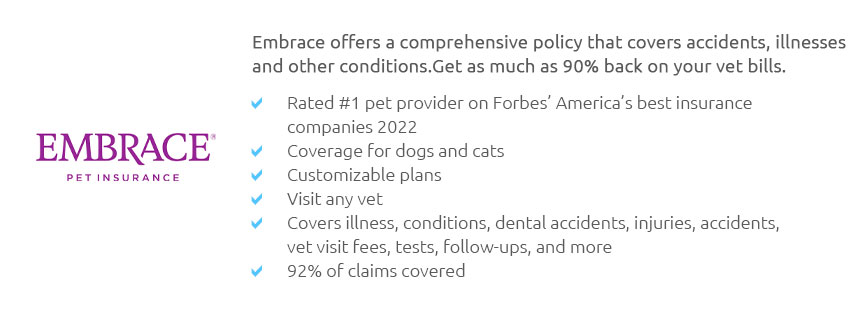|
dog health insurance nj: a market overview for smarter selection and savingsWhat shapes the NJ marketPremiums and coverage quirks in New Jersey reflect dense metro care near Hudson County, suburban practices in Morris and Monmouth, and emergency clinics that rarely close. Prices flex with breed risk, age, and claim history. It looks straightforward; it isn't always. - Regional vet costs: urban hospitals can bill higher; rural clinics may be gentler on the wallet.
- Breed considerations: large and brachycephalic breeds tend to lift rates.
- Weather and lifestyle: icy winters, shore trips, ticks - seasonal claims can spike.
- Regulatory filings: policies are state-filed forms; wording differences matter.
Policy types comparedAccident-only, Accident & Illness, Wellness add-onsAccident-only is lean and typically cheapest. Accident & Illness covers the big-ticket problems - cancer, digestive issues, chronic conditions. Wellness add-ons handle routine care but don't create long-term protection; they're budgeting tools, not risk transfer. - Accident-only: lowest cost, pays for injuries; no illness.
- Accident & Illness: broadest core safety net; price depends on limits, deductible, reimbursement %.
- Wellness riders: predictable reimbursements for vaccines/exams; check caps to avoid overpaying.
Premium math and savings leversThree dials drive price: annual limit, deductible, and reimbursement rate. A higher deductible and a 70 - 80% reimbursement often unlock meaningful savings without gutting protection against major bills. - Deductible: higher often means lower monthly cost; per-incident vs annual changes how often you pay it.
- Reimbursement %: 70/80/90; lower % trims premium but raises your share on big claims.
- Annual limit: balancing $5k, $10k, or unlimited - consider breed risk and local ER fees.
- Discounts: multi-pet, pay-annually, military/first responder, or employer benefits may apply.
- Fees: some charge monthly billing fees; paying yearly can shave a few dollars.
Coverage details NJ owners compare- Waiting periods: different for accidents vs cruciate/hip; note any bilateral exclusions.
- Exam fees: included or optional - impacts ER visit costs.
- Dental illness: disease vs accident-only coverage varies widely.
- Chronic and hereditary: look for lifetime coverage once covered, not per-condition caps.
- Rehab/alternative care: PT, acupuncture, and laser therapy can be big value after surgery.
- Cancer care: chemo, diagnostics, and oncology consults - watch sublimits.
- Prescription meds and food: meds often covered; prescription diets are hit-or-miss.
A quick real-life momentOn a drizzly Saturday in Montclair, I helped a neighbor upload her Lab's ear-infection invoice - just a couple hundred dollars - through her insurer's app before leaving the clinic. The claim felt simple, but the deductible and exam-fee toggle decided most of the reimbursement. That little reminder: settings matter more than the headline price. Provider contrast at a glance- Budget-first: lower limits, higher deductibles, solid for healthy young dogs.
- Comprehensive: richer illness cover, exam fees, rehab; expect higher premiums.
- Customizable: many sliders for limit, deductible, and % reimbursement; good for fine-tuning.
- Tech-forward: fast claims via app, direct-pay pilots with some clinics.
Choosing without overspending- List must-haves: chronic illness, ER, and cancer care usually top the list.
- Pick a budget range: set a monthly ceiling you'll actually keep.
- Run two quotes: a value setup (higher deductible, 80% reimbursement) and a comfort setup (moderate deductible, 90%) - compare yearly out-of-pocket under a big claim.
- Read sample policy: scan exclusions, waiting periods, and bilateral language.
- Check claim flow: app, vet-direct pay options, and average processing times.
- Revisit yearly: as your dog ages, adjust deductible/limits to stay efficient.
NJ-specific fine printPolicies are filed in state, so wording can differ from what friends in PA or NY describe. Verify your free-look period, how pre-existing conditions are defined, and whether exam fees are bundled or optional. None of it is tricky on purpose, but the small print drives outcomes. - Pre-existing: typically excluded; some conditions can be considered cured after a long symptom-free window - definitions vary.
- Orthopedic clauses: special waits or exams for hips/cruciates are common; ask how to shorten them.
- Cancellation and changes: mid-term changes can reset deductibles or waits - confirm before switching plans.
Bottom lineFor dog health insurance nj buyers, the win comes from careful selection of coverage that protects against big surprises while capturing everyday savings. Quotes look clean; real life brings exam fees, deductibles, and sublimits into play. Compare a couple of configurations, read the sample policy, and choose the setup you'll feel good about when a Saturday vet visit becomes an ER night.

|
|












